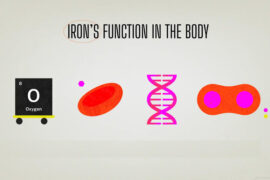The results of a significant clinical experiment conducted by the Harvard T.H. Chan School of Public Health and Queen Mary University of London challenge the widely held belief that vitamin D supplements strengthen bones and prevent fractures in children with vitamin D insufficiency. Childhood fractures are a substantial global health concern, affecting over one-third of kids before the age of 18 and potentially leading to long-term disability and a diminished quality of life.
The study, published in Lancet Diabetes & Endocrinology on December 1, is the largest randomized controlled trial on vitamin D supplementation in children to date. The research involved 8,851 schoolchildren aged 6-13 in Mongolia, a country with a high fracture burden and prevalent vitamin D deficiency. Participants received weekly oral doses of vitamin D supplementation over three years, effectively raising vitamin D levels to normal in 95.5% of participants.
Surprisingly, despite the successful correction of vitamin D deficiency, the study found that the supplementation had no impact on fracture risk or bone strength. Bone strength was measured in a subset of 1,438 participants using quantitative ultrasound. This outcome challenges previous assumptions about the benefits of vitamin D supplementation in promoting bone health among schoolchildren.
The findings from this trial are likely to prompt a reassessment of the presumed effects of vitamin D supplements on bone health in scientific, medical, and public health communities. It underscores the importance of evidence-based approaches and encourages further research to better understand the complex relationship between vitamin D, bone health, and fracture prevention in children.
Dr Ganmaa Davaasambuu, Associate Professor at the Harvard T.H. Chan School of Public Health, stated, “The absence of any effect of sustained, generous vitamin D supplementation on fracture risk or bone strength in vitamin D deficient children is striking. In adults, vitamin D supplementation works best for fracture prevention when calcium is given at the same time – so the fact that we did not offer calcium alongside vitamin D to trial participants may explain the null findings from this study.”
Professor Adrian Martineau, Lead of the Centre for Immunobiology at Queen Mary University of London, attached, “It is also important to note that children who were found to have rickets during screening for the trial were excluded from participation, as it would not have been ethical to offer them placebo (dummy medication). Thus, our findings only have relevance for children with low vitamin D status who have not developed bone complications. The importance of adequate vitamin D intake for prevention of rickets should not be ignored, and UK government guidance recommending a daily intake of 400 IU vitamin D remains important and should still be followed.”
Disclaimer:
The information contained in this article is for educational and informational purposes only and is not intended as a health advice. We would ask you to consult a qualified professional or medical expert to gain additional knowledge before you choose to consume any product or perform any exercise.







